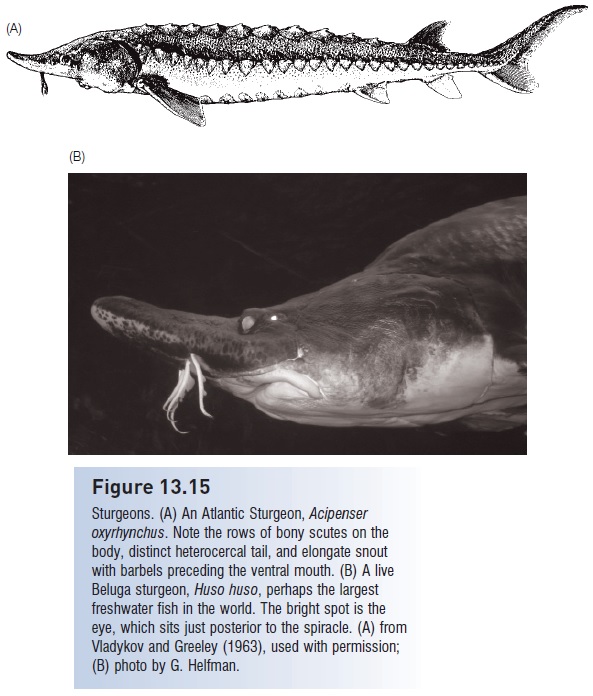Chapter: The Diversity of Fishes: Biology, Evolution, and Ecology: Living representatives of primitive fishes
Class Actinopterygii, Subclass Chondrostei, Order Acipenseriformes: sturgeons and paddlefishes
Class Actinopterygii, Subclass Chondrostei, Order Acipenseriformes: sturgeons and paddlefishes
Although considered primitive actinopterygians, the extant acipenseriform sturgeons and paddlefishes are highly derived, relict species that bear little resemblance to ancestral chondrosteans. The two families probably diverged from each other during the Jurassic, but they still share a number of characteristics such as a cartilaginous skeleton, heterocercal tail, reduced squamation, more fin rays than supporting skeletal elements, unique jaw suspension, and a spiral valve intestine. Although largely cartilaginous, their skeletons are secondarily so: ancestral, Early Mesozoic chondrosteans (more correctly palaeoniscoids) were bony.

Figure 13.15
Sturgeons. (A) An Atlantic Sturgeon, Acipenser oxyrhynchus. Note the rows of bony scutes on the body, distinct heterocercal tail, and elongate snout with barbels preceding the ventral mouth. (B) A live Beluga sturgeon, Huso huso, perhaps the largest freshwater fish in the world. The bright spot is the eye, which sits just posterior to the spiracle. (A) from Vladykov and Greeley (1963), used with permission; (B) photo by G. Helfman
Related Topics